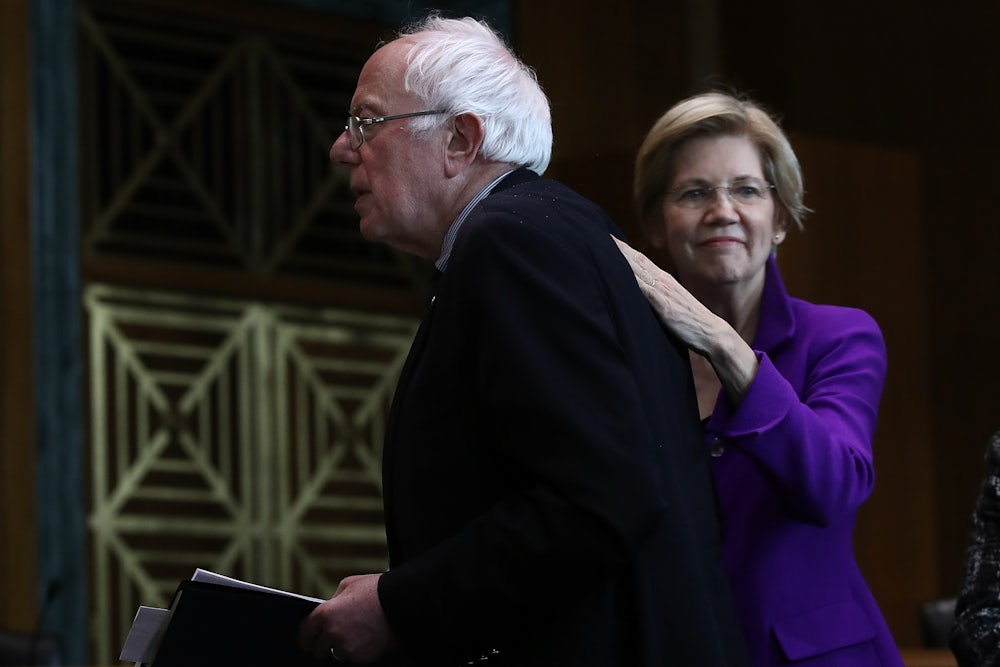Late last month, Washington Post reporter Aaron Blake published his ranking of the “top 15 Democratic presidential candidates for 2020.” He put Massachusetts Senator Elizabeth Warren at number three, but wrote, “If Warren runs, I think she tops this list. But I have a difficult time seeing her running if Bernie Sanders does, and I think Sanders is very likely to run. Warren has shown comparatively little inclination.” The two heaviest hitters weighing a challenge of President Donald Trump, according to Blake, are Sanders and former Vice President Joe Biden—who could fit into populist and anti-populist lanes, respectively.
On Tuesday, though, Politico reported Warren “has spent the past year making a series of below-the-radar moves that would put her in prime position” if she choose to seek the White House. “The liberal icon and Republican bete noire has amassed more money in her campaign war chest than nearly any senator in modern history, groomed political connections with Democrats who’ve been skeptical of her in the past, and worked to bolster her bipartisan and foreign policy bona fides,” reporter Gabriel Debenedetti wrote. Sources told him it’s “a conscious break from the heads-down posture that Warren purposefully maintained during the first five years of her Senate career.”
Meanwhile, as Debenedetti reported in late November, “Bernie Sanders is taking steps to address longstanding political shortcomings that were exposed in 2016, ahead of another possible presidential bid in 2020.... [T]he maneuvers could form an important part of a Sanders 2020 effort, a dozen of those allies acknowledged to POLITICO—one that looks markedly different from his surprise 2016 bid, which often suffered from a lack of mainstream political support.”
All of which means that, contrary to conventional wisdom, the 2020 Democratic primary could be a showdown between two titans of the American left.
Three questions every potential Dem 2020 candidate asks themselves while considering a run:
— Gabriel Debenedetti (@gdebenedetti) January 2, 2018
1. What's Bernie Sanders doing?
2. What's Joe Biden doing?
3. What's Elizabeth Warren doing?https://t.co/OViGlI3PI8
1. He's running.
— Dave Weigel (@daveweigel) January 2, 2018
2. He's running.
3. She's running. https://t.co/r4AOOKMVdK
It’s entirely possible that neither Sanders, who is 76, nor Warren, who is 68, runs for president. But it’s likely that at least one of them will. They’re both primed to capitalize on the leftward shift in the Democratic Party—a shift they’re partly responsible for. This could be the moment for both of them, and they do have subtle differences for voters to scrutinize. Sanders is more of an outsider, a democratic socialist who identifies as an independent rather than a Democrat. Warren is fundamentally a pro-markets institutionalist, more interested in making the existing economic and political system fairer than overturning it altogether.
It’s true that Sanders and Warren are close; Debenedetti notes that Sanders calls Warren “my favorite senator.” In 2016, Sanders confidant and progressive talk show host Bill Press told C-SPAN, “If Elizabeth Warren had run, I’m pretty confident in saying Bernie Sanders never would have run.” Would that still hold true for 2020?
